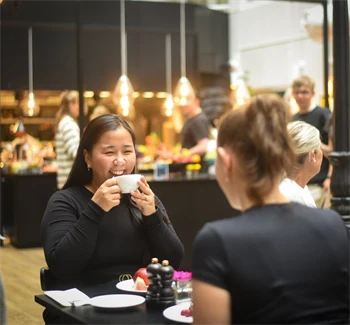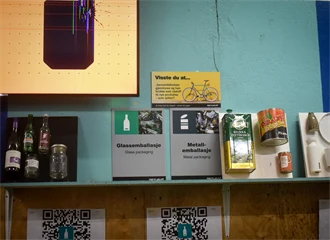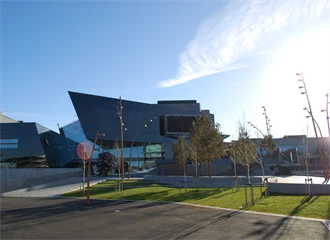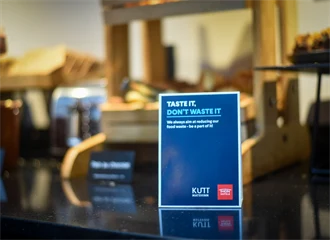Circular habits and solutions
Consumption of goods and how we handle waste is an important part of our sustainability work. We want to constantly improve and work actively to minimise our impact on the climate and natural resources, and reduce our emissions.
On this page you can read more about how we work with sorting waste, reusing and reducing food waste, and how we work with circular buildings.
Waste management and reuse
Systematic waste management and reuse are important tools – both internally in the Thon Group and in cooperation with our suppliers, tenants and customers.
Our value chain, whether it concerns the operation of hotels or the construction of new properties, creates waste. We therefore work actively to facilitate, encourage and set requirements for suppliers, tenants and customers.
In addition, we look at our own habits and what opportunities the Thon Group has to reduce our impact on nature.
Circular goals
- Reduce food waste by 50% by 2030.
- Expand the area of use for Thon Gjenbruk (see fact box below).
- Require companies that rent premises from us to commit to a 65% sorting rate by 2027.
Examples of initiatives we have implemented
- Guidelines have been drawn up for waste sorting and waste management plans for the various business units.
- In 2020, Thon Gjenbruk AS was established. This is a concept whereby the Thon Group collects surplus goods and fixtures from its own projects, which can be reused and sold on to other projects, both internally and externally.
- Since 2016, Thon Hotels has collaborated with Too Good To Go, which helps hotels sell leftover food that has already been produced.
- As of 2022, 42 of our hotels have entered into a collaboration with eSmiley, which registers food waste.
Initiatives against food waste
One of the initiatives to reduce food waste is that our hotels use smaller plates for their breakfast buffet. This encourages guests to help themselves several times.
Thon Hotels saves mealsCircular buildings
There is no hiding the fact that the construction industry has high greenhouse gas emissions and a large negative climate impact. Since several of the Thon Group’s projects involve the development of buildings, it is essential for us to look at opportunities for minimising the impact on the climate and nature.
If we manage to reuse more materials, we minimise the need to use new ones, which in turn leads to less pressure on natural resources.
Selected targets for circular buildings in Thon
- Establish a team responsible for analysing prospective requirements for circular solutions in buildings.
- Require that the reuse rate of non-hazardous waste in construction projects is in line with the EU taxonomy (90%) by 2027.
- In 2030, the percentage of reused materials must be in line with the EU taxonomy for circular economy (30%).
EU taxonomy
The EU taxonomy is a classification system with criteria set by the EU for which activities can be considered sustainable.
The taxonomy is an important part of the EU’s action plan towards a more sustainable economy, and a step towards reaching net zero emissions by 2050.
If you want to know more about our circular solutions, you can download the sustainability report.




